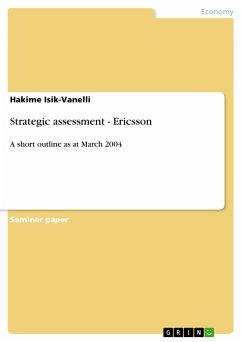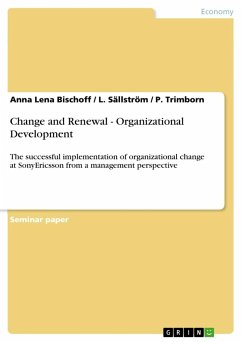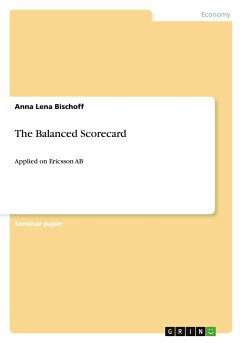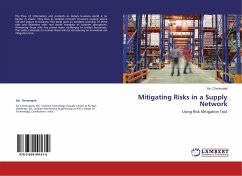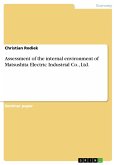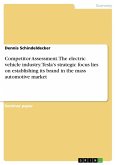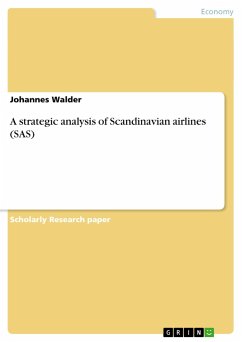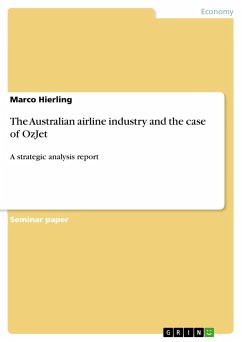Seminar paper from the year 2004 in the subject Business economics - Business Management, Corporate Governance, grade: Distinction, Bond University Australia, language: English, abstract: IntroductionBy the end of the eighties the old Swedish telephone company Ericsson stood strong. They had a diversified revenue income stream, operating in defence, radar and second in the world in landline telecom, after the American giant AT&T. Also, a little research project that had started in a lab outside Gothenburg had started to take off. This was wireless telecom and had been identified to have a huge market potential by top management. This new business demanded heavy investments in cutting edge technology but revenue came in from all parts of the firm and Ericsson had the investor's confidence, backed by the two strongest business spheres in Sweden. At the same time there was a similar company in the neighbour country of Finland. Nokia, an old engineering company, offered similar products but had lived in the shadow of Ericsson. Wireless telecom took of and together with internet soon became the growth industry of the nighties. Every trader on Wall Street all by a sudden knew about these two companies from the remote north of Europe. In a rapidly growing market there was money to be made for all players in this field but when the stock market rally of the nineties was over, its little brother from Finland outperformed Ericsson. This paper will look at the strategic paths these companies took and why the smaller player managed to outperform the giant. Focal firmLars Eric Ericsson founded Ericsson 1876. Ericsson has always been a technological driven company, usually with engineers as top management. Ericsson is a diversified company operating in defence, radar, telephone and wireless telephone. Although a diversified engineering company, Ericsson's tremendous growth during the nineties comes from their expertise wireless telephoning. This includes mobile systems, components and mobile phones. The distinctive competence comes from their expertise in mobile systems. They were first with NMT (G1) and later with the GMS (G2) system currently in use. Ericsson is a company full of engineers and the engineering culture is deeply rooted within the company. It has always been in the forefront in mobile systems and R&D is a cornerstone in this company. However, it is not enough to be good at engineering.
Hinweis: Dieser Artikel kann nur an eine deutsche Lieferadresse ausgeliefert werden.
Hinweis: Dieser Artikel kann nur an eine deutsche Lieferadresse ausgeliefert werden.

